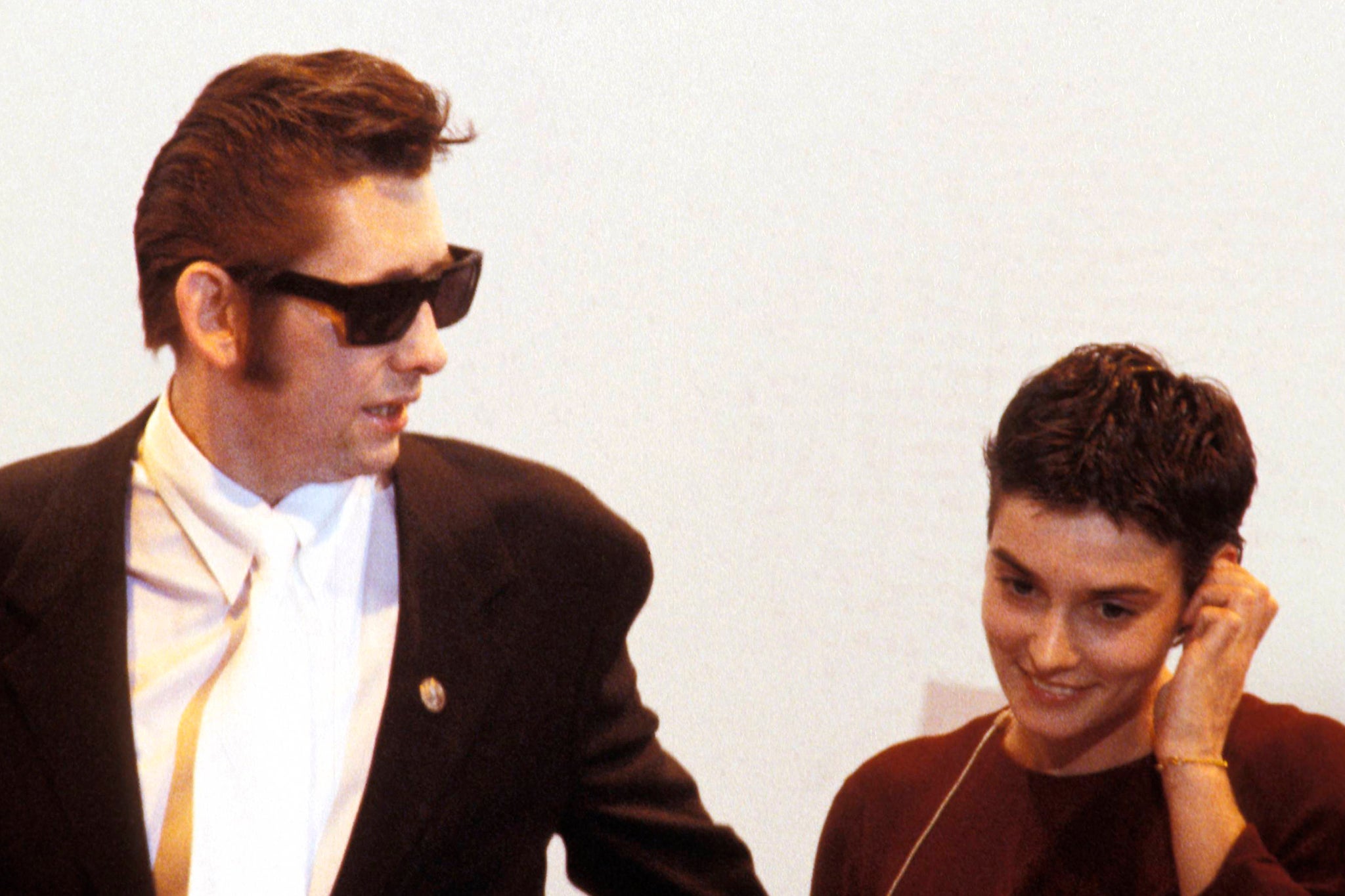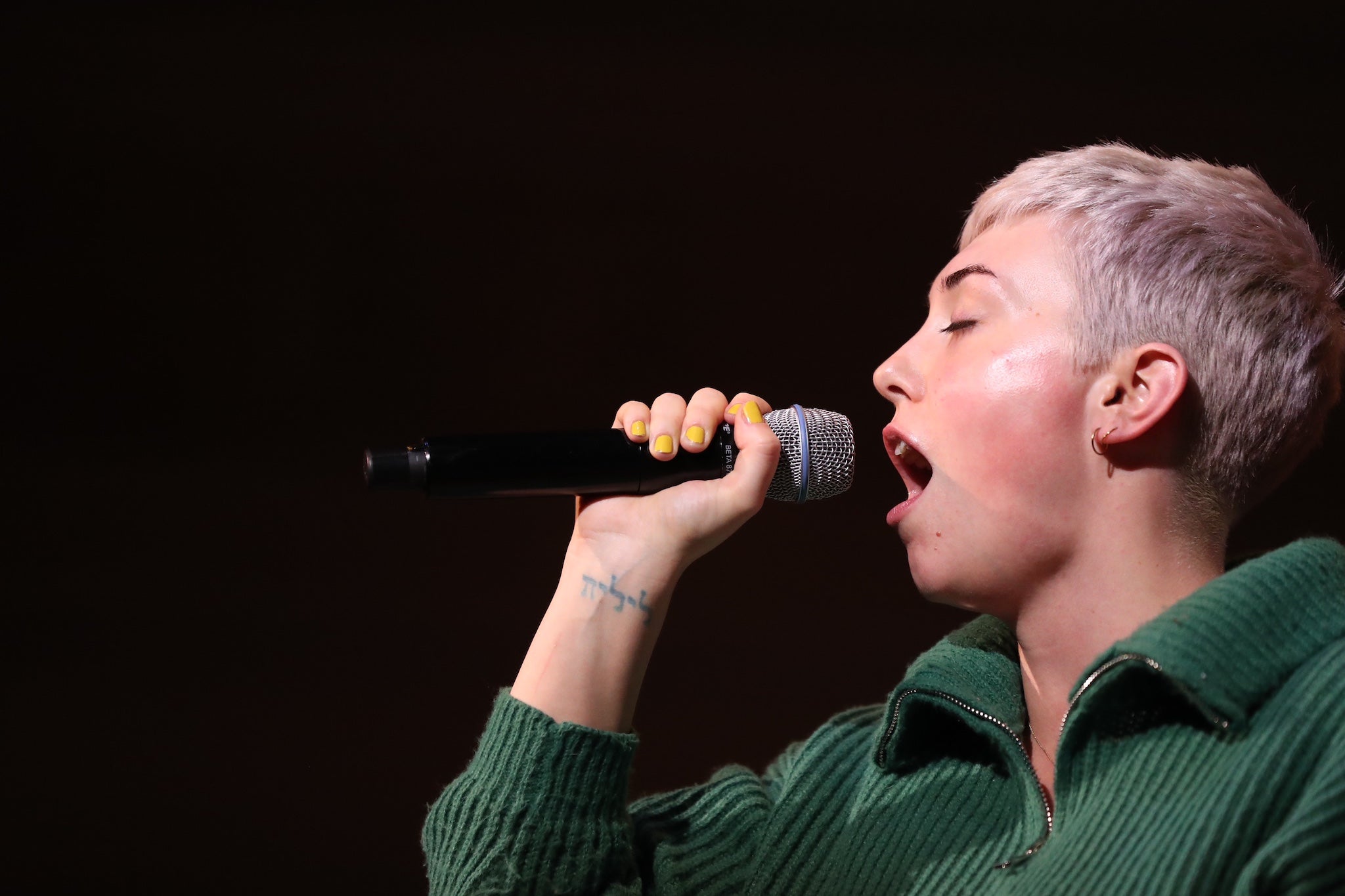A song from Sinéad’s daughter, a stomping audience: stars in New York remember Sinéad O’Connor and Shane MacGowan
At New York’s Carnegie Hall, a St Patrick’s Day tribute to two inimitable legends of Irish song was a reminder of the enduring power of their music, writes Sam Sodomsky. Even if the star-studded bill admitted they’d rather have been watching the two much-missed singers performing themselves

Early during a tribute show for the late Irish songwriters Sinéad O’Connor and Shane MacGowan, Gordon Gano of the Violent Femmes appeared with a broken-looking violin and bow. Tentatively and shakily, he started to sing “A Pair of Brown Eyes,” a barroom classic from The Pogues’ 1985 masterpiece Rum Sodomy & the Lash. It opened nearly acapella, with a few gentle plucks, his delivery nearly spoken. Gradually, he gained momentum, and the audience began to sing and stomp along to its swooning chorus. Suddenly one of Manhattan’s most prestigious concert halls felt as intimate as a pub at last call, and Gano was the drunkest patron, finally mustering the courage to spill his guts.
This alchemy speaks to the enduring power of both MacGowan and O’Connor’s songs, which alternated in the setlist among a stacked cast of friends and family, kindred spirits and peers at Carnegie Hall. Occasionally the wide divergence between the two songwriter’s voices – MacGowan the raucous vagabond and O’Connor a more serene, piercing narrator – led to a sense of whiplash from song-to-song. I wouldn’t envy anyone who had to follow the Resistance Revival Chorus’ political interpretation of O’Connor’s hymnlike “Thank You for Hearing Me,” which the 12-piece gospel choir interspersed with new lyrics calling for a ceasefire in Gaza. But I certainly hadn’t anticipated Eugene Hütz of the theatrical punk band Gogol Bordello blasting through a euphorically unintelligible rendition of MacGowan’s 1994 screamer “The Church of the Holy Spook”.
And yet, these wild dynamics were often the point of the concert, which spanned three hours and 22 songs (23 including a solo bagpipe performance that kicked off the evening). The event, which raised $70,000 for the non-profit PEN America, aimed to present not only the best of each artists’ songbooks but also their famously outsized personalities. “This evening is a little more s*** than it could be,” noted Imelda May, who confessed that each performer would rather be sitting in an audience watching MacGowan or O’Connor take the stage. (This point was often affirmed by looking toward stage right, where the performers gathered to watch each successive act, occasionally stepping on stage to dance in the background, as during Billy Bragg’s triumphant “A Rainy Night in Soho”.)
Adding to the tone of reverence, most artists chose not to speak before their performances, letting the music do the talking. Both the Resistance Revival Chorus and Imelda May found evocative ways to showcase the politics at the heart of O’Connor’s work, while Josh Ritter gave a beaming performance of “The Broad Majestic Shannon” that summoned the joy and romance underlying MacGowan’s gruff persona. Introducing the song, Ritter spoke briefly about the formative moment when a childhood friend introduced him to The Pogues, and when The Hold Steady’s Craig Finn and the Mountain Goats’ John Darnielle hugged their way through a blissed-out duet of “Sally MacLennane”, you could imagine that moment in some adolescent basement.
Perhaps due to the imposing grandeur of Carnegie Hall, the atmosphere sometimes dictated a measured, dignified air among the audience, not totally fitting either songwriter’s preferred setting. (Some of the most riotous applause came for Cait O’Riordan, the beloved Pogues bassist who performed in the night’s house band).
Accordingly, it felt like a relief when Dropkick Murphys frontman Ken Casey told a pair of hilarious, humanising stories about MacGowan, one of which involved the musician scrawling a series of profanities alongside his autograph on a rare 7”. The band’s following performance of “The Body of an American” was the first of the night to bring the crowd to its feet – a reminder that it was precisely these artists’ unruliness that made them so uniquely lovable.

The closing suite of songs shed light on the immortal quality of their work: “Nothing Compares 2 U” was performed emotionally by O’Connor’s daughter Roisin Waters and followed by the inevitable singalongs of “Fairytale of New York” (led by Glen Hansard and Cait O’Riordan) and “Dirty Old Town”. Bearing a striking resemblance and a similarly visceral vocal style, Waters carried her mother’s signature song as the band softened for its final verse, which O’Connor once directed to her own late mother. (O’Connor noted this is what inspired the tears in the song’s unforgettable video.) The highlights of the night all spoke to this quiet strength.
Whereas MacGowan’s songs seem designed to be covered – in the tradition of folk storytelling, with his ancient-sounding melodies and endless verses – O’Connor’s always felt more suited to her own strange vocabulary, forcing the acts to either try sticking to her script or reinvent them entirely. Performing the haunting “I Do Not Want What I Haven’t Got”, the legendary vocalist Bettye LaVette chose the latter path, sharpening O’Connor’s unaccompanied words into an uplifting chant.
Written by an embattled songwriter in her early twenties, the hard-won journey in the lyrics sounded vastly different as delivered by a veteran soul singer nearing 80. Watching her linger in the silence between each line, I thought of a mid-Nineties interview where O’Connor and MacGowan sit side-by-side, discussing their anxieties about dying: “I think living is harder, probably,” O’Connor quips. If there was a unifying lesson amid the myriad stories told on stage, it is to take sanctuary in the voices that help get us through it.
Join our commenting forum
Join thought-provoking conversations, follow other Independent readers and see their replies
Comments
Bookmark popover
Removed from bookmarks